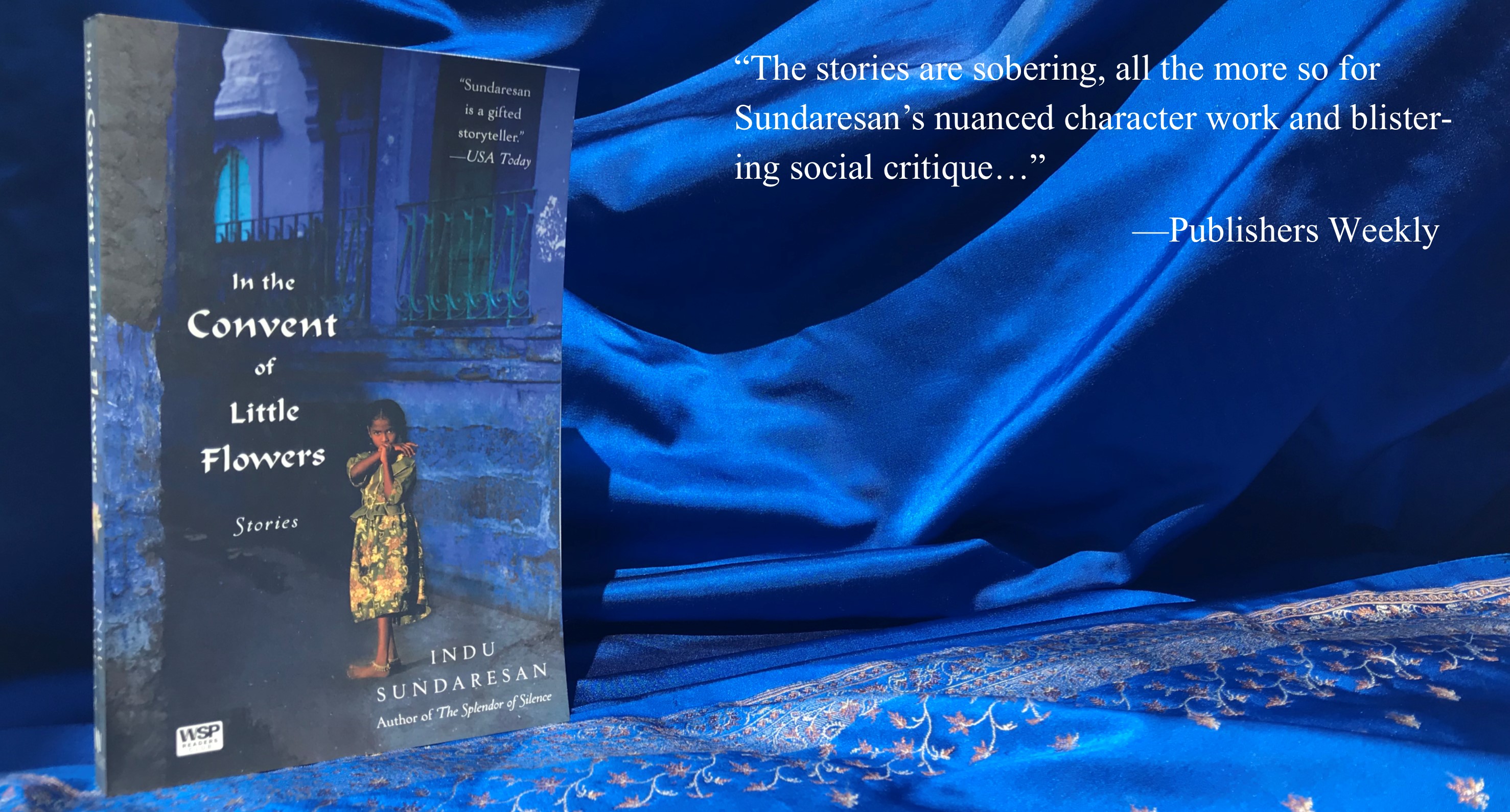“Indu Sundaresan’s…first story collection…contains India’s multitudes, all in relationships of opposition — men vs. women, traditional vs. new, haves vs. have-nots. Throughout, Sundaresan cultivates empathy for her characters and their individual anguish at straddling those great divides…[She] thrives in the silences and histories, intimacies and betrayals of families…Sundaresan’s powerful writing compels empathy, and in doing so provides a living portrait of India, in all its diversity, through her unforgettable characters.”
—Fictionwritersreview.com
“What the collection accomplishes is the stimulation of thought about existing evils such as—but certainly not limited to—child abandonment, elder abuse, women’s rights and struggles, and archaic, illegal practices that have no place in modern society…razor-sharp collection of stories…[Sundaresan’s] genuine characters, balanced tone, and subtle storytelling leave little to chance and offer much to contemplate.” —India Currents
“…a poignant…portrayal of an India caught between the progress of the 21st century and a past locked in tradition…the collection both describes and evokes intense emotion…gifted storytelling…” —The Asian Reporter
“[Indu Sundaresan’s]…new book…turns her revealing prose on the contorted relationship of past and present in 21st-century India…These stories are portals into the Indian soul, revealing the breaches and the bonds that delineate the relationship between rural and urban India, and the intricate play of ancient stricture and modern striving in contemporary life…The stories within these pages are brilliant, penetrating…”
—National Geographic Traveler
“Sundaresan…questions how evolved the globalized world truly is in these stories of individuals trapped between India’s archaic traditions and blitz into modernity…The stories are sobering, all the more so for Sundaresan’s nuanced character work and blistering social critique…” —Publishers Weekly
“From a few small sparks, Sundaresan illuminates the lives of Indian women at home and abroad facing issues of new freedoms afforded by new vistas and those trapped by the old traditions. She creates compelling characters with vivid settings and real issues. Truly satisfying fare for fans of world literature…Sundaresan weaves…wonderful narratives…”
—Library Journal
“Indu Sundaresan is one of the new generation of Indian novelists who not only sees, but is willing to write about those things going on behind closed doors, in the back streets, and far beyond the glare of bright city lights. In her newest collection of short fiction, In The Convent Of Little Flowers…she covers everything from elder abuse and the consequences of the caste system, to the hardships that are still common place for women in India…Elegant and eloquent, her stories speak from the heart and are full of compassion…”
—Blogcritics.org
“These nine stories illuminate the complexities of social class, customs, generational differences and the diversity of rural and urban India. However, what makes each story compelling is the author’s command over the prose and her ability to capture the subtle nuances that bring her characters to life.”
—Sawnet.org
“The stories are…compelling…and show a side of modern India that one tends to forget….With this book, Indu has secured a place for herself amongst other writers of Indian fiction. She has shown that she can write as well about 21st century India, particularly women, as she can about 17th century Indian women.”
—Lokvani.com
“Indu Sundaresan’s stories impress because they are beautifully written with great insight into the cultures that make up India. She takes ordinary words and puts them together to create tales of huge impact, relating the history of that country and bringing out the differences between Eastern and Western culture…In the Convent of Little Flowers is a book that should be read for its beauty and also for the heads up it gives to the world community.”
—Bookloons.com
“Indu Sundaresan is an extremely talented writer. Her characters are very real—so real that you almost feel that you know them in your actual life. She has a fascinating style of writing. You are pulled into the story from the very first line and you cannot put the book down until you’ve read the very last. And when you are done reading the last story, it only makes you sad because you want to keep reading more…In each story, there is a clash between the culture, customs and traditions being followed in India for generations and the new ideals that are slowly seeping into the minds of youngsters these days. Each story is very unique in its own way…” —Ramya’s Bookshelf
“The stories in In the Convent of Little Flowers are simply written and utterly beautiful…Each has its own quality that recommends itself to the reader. As such, there is not one bad story among them, not one lesser tale. That is quite a feat for an author, to write stories of such depth and magnitude that they are all equally moving.”
—S. Krishna’s Books
“These stories are about the thorns…hidden among the flowers… Women were and still are considered a burden…holy only in marriage, motherhood, and death…Sundaresan doesn’t try to be elusive with her themes nor brutal with them. She just states the reality as seamlessly as people carry them out. You figure out what happens quickly, but the emotional impact it had on you is something that keeps racketing your brain.”
“From adoption to marriage, Indu Sundaresan guides us through a culture in transition. In [In the Convent of Little Flowers] one will find many women characters wrestling with traditional values while desiring the need for intimacy and love. Sundaresan’s characters are unforgettable. How can we not remember Meha and Chandar? It is Sundaresan’s skill with language that opens the door to India as well as the human heart.”
—E. Ethelbert Miller, Director, African American Resource Center, Howard University


